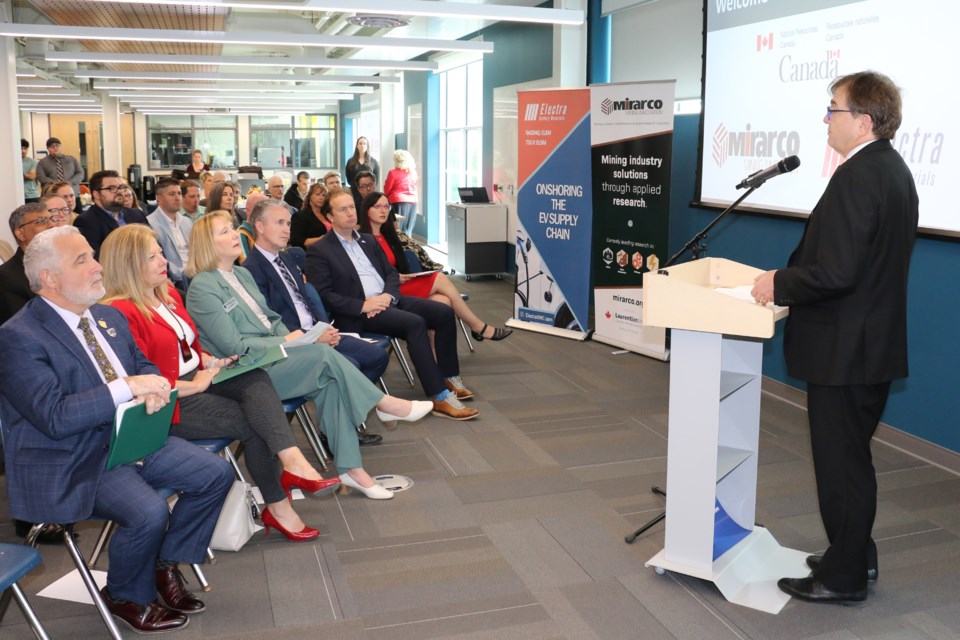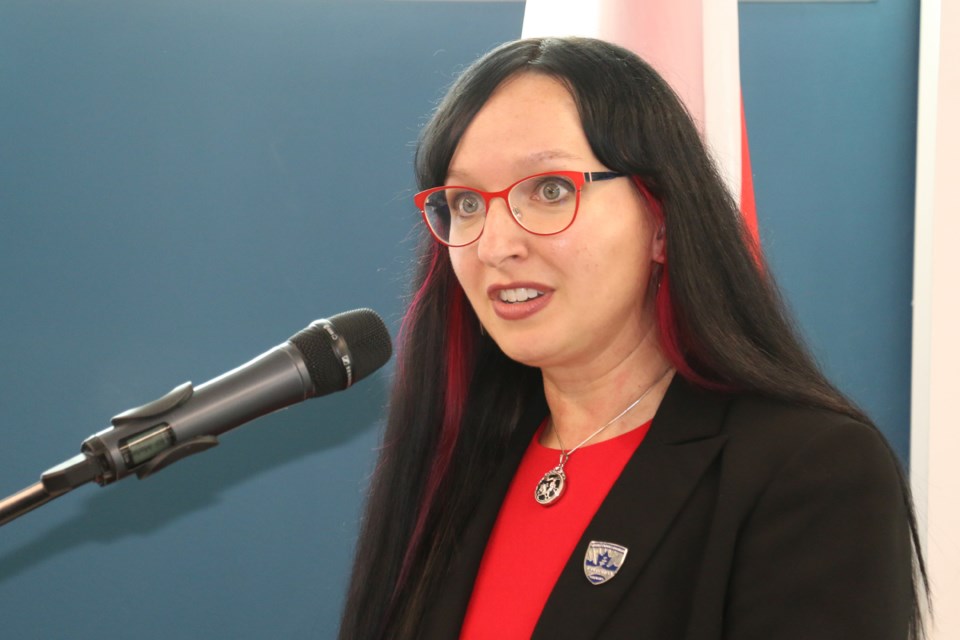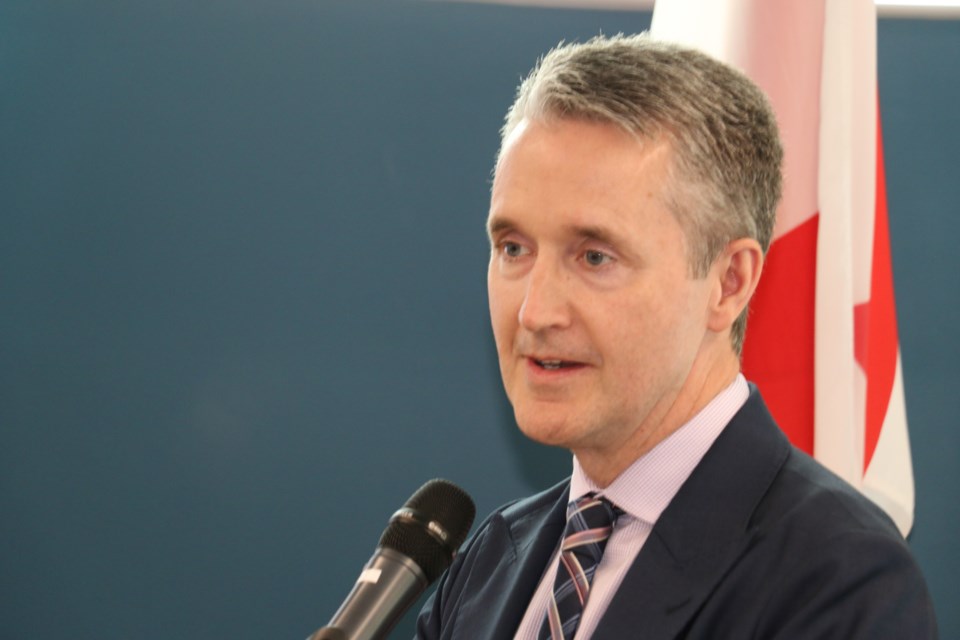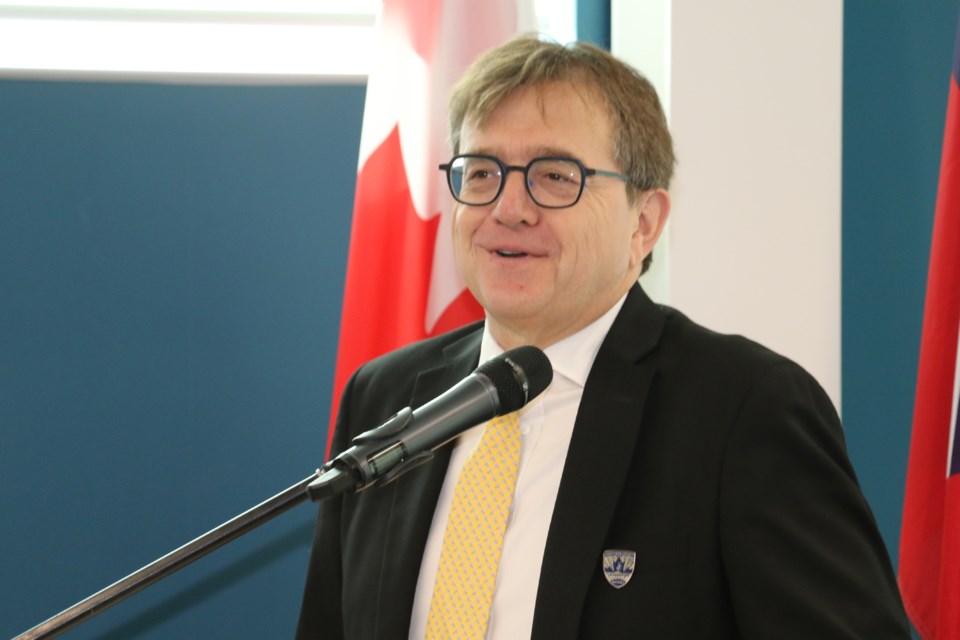The federal government waved the flag for adapting to climate change on June 10 with the announcement of $10 million in federal investments for boosting the critical minerals supply chain and the development of technology toward battery electric vehicles.
The announcement was made by federal Energy and Natural Resources Minister Jonathan Wilkinson, who took part in a public event at Laurentian University.
Wilkinson announced two investments of $5 million each to the Mining Innovation Rehabilitation and Applied Research Corp (MIRARCO) in Sudbury, and to Electra Battery Materials Corporation (Electra), to support the critical minerals sector in Canada.

These projects join nearly 130 mining projects under construction or planned over the next 10 years in Canada, representing a combined value of $93.5 billion, according to Natural Resources Canada’s Major Projects Inventory, said the minister.
Wilkinson commented that the Sudbury research project was a significant jump forward for the mining industry and he hoped to see a circular concept where more waste products are recycled and used again and again.
"This important project aims to advance and enhance the recovery of battery metals nickel, cobalt and copper from tailings by pilot testing and demonstration of three competing bio-leaching technologies," said Wilkinson, commenting on the MIRARCO effort to test the commercial ability of using bacteria to recover metals from former Vale and Glencore mine tailings, using bacteria.
Through this project, MIRARCO will directly feed into the battery supply chain, potentially unlocking significant amounts of nickel and cobalt in Sudbury, Wilkinson said.
The money for Electra will be used to advance the next phase of its battery materials recycling project. Electra is constructing North America’s only battery-grade cobalt refinery, in Temiskaming Shores, as part of a multi-phase effort to build the North American supply chain for battery materials.

The minister said the critical minerals research development and demonstration program money is to advance and enhance the recovery of lithium, nickel, cobalt, manganese, graphite and copper from previously used batteries.
"This project will help reduce the environmental impact of battery production in Canada while simultaneously increasing the supply of critically critical recycled metals," said Wilkinson.
Electra successfully ran a demonstration recycling program on a batch basis at the Temiskaming Shores plant in 2023. The new funding is directed at advancing the project, demonstrating the process on a continuous basis and showing that Electra’s proprietary technology is scalable, profitable and can be implemented at other locations, said a company news release.
In an interview after the public event, Wilkinson said it was "enormously important" for his ministry to get the word out to Canada in general and the mining industry in particular on the role of adapting to climate change with projects such as those being done by MIRARCO and Electra.
He said the push for critical minerals is crucial.
"We must accelerate the volume of critical minerals that we are producing in this country, significantly, and so some of the investment tax credits that the federal revenue has brought forward, which will pay for a portion of the capital associated with minerals and minerals processing projects, is intended to essentially be that kind of support."
MIRARCO executive director Nadia Mykytczuk said her organization was grateful for the investment.
"We're excited to be undertaking this work that is funded under the CMRDD (Critical Minerals Research, Development and Demonstration program) and we're driven to expand this research through developing a centre for mine waste, by technology with future announcements we hope to bring your way, that will build on the success of this first pilot program," she said.

Electra Battery CEO Trent Mell said as the battery electric vehicle industry grows and expands in Ontario, the recycling of battery materials will become more important than ever.
"Electra, who we are, we sit in the midstream of the supply chain between the mines and the battery plants that we know so well. And we can process materials, whether it be primary mine feeds or material from spent batteries," said Mell.
"So the refinery that we have in Temiskaming Shores, phase one is cobalt processing — so it's third party feed coming in — we make it into what will be North America's first domestic source of battery grade cobalt.”
Len Gillis covers mining and health care for Sudbury.com.




